
Perennial Forbs Around Las Vegas, Vegetation Around Las Vegas
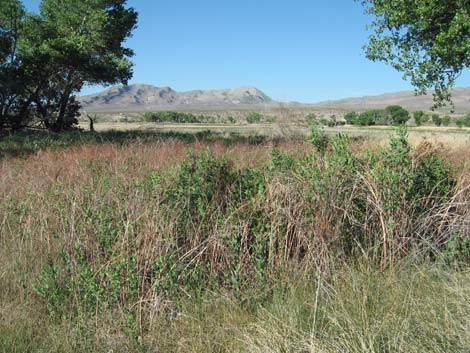 |
General: Indianhemp (Apocynum cannabinum) is a tall, perennial, wetland forb that grows upright on straight stems that can be green or red. The leaves are yellow-green above and below, opposite, ascending, about 3 inches long, clasping or not, and can be broad or narrow. Five-petaled, white flowers are produced in clusters at the end of the stems. Seed pods are long and narrow, and they produce plumed seeds that can drift on the wind. Indianhemp is an uncommon component of wetland communities in the Upper Sonoran (Mojave Desert Scrub and Pinyon-Juniper Woodland), and Transition (Yellow Pine Forest) life zones. Around Las Vegas, look for this species along desert streams and lakes, such as in Calico Basin (Red Rock Canyon NCA) and along the shoreline of lakes in Pahranagat National Wildlife Refuge. This plant is poisonous: do not eat! |
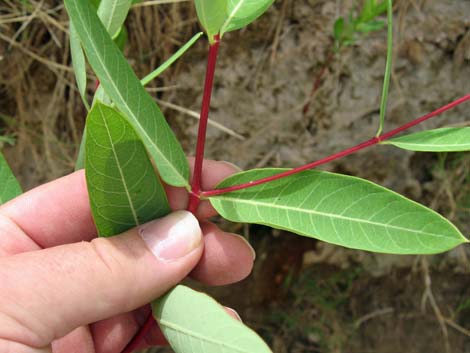 |
Family: Dogbane (Apocynaceae). Other Names: Indian Hemp, dogbane, amy root, hemp dogbane, prairie dogbane, rheumatism root, wild cotton. Plant Form: Tall, upright, perennial forb. Height: To about 4(7) feet tall. Stems: Ascending to erect, branched towards the top, green to red in color. Leaves: Blade to about 3 inches, veins prominent; petiole short. Blades narrow-ovate to lanceolate. |
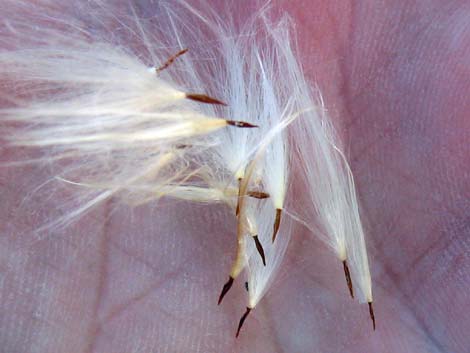 |
Flowers: Blooms during early to mid-summer. Inflorescence: cyme with many flowers. Flowers bell-shaped to about 1/3 inch. White. Petals 5. Seeds: narrow, pointed, with a large cottony plume Habitat: General, but not limited to, wetlands habitats. Elevation: About 500 to 6,000 feet. Distribution: Throughout the US and Canada. Comments: This plant is poisonous: all parts of the plant are poisonous and can cause cardiac arrest if ingested. The stems contain a milky latex that can be a skin irritant. Acts to damage the heart, respiratory, and urinary systems. The bark yields a good quality fiber that can substitute for flax. Used by native people for cordage and clothing. |
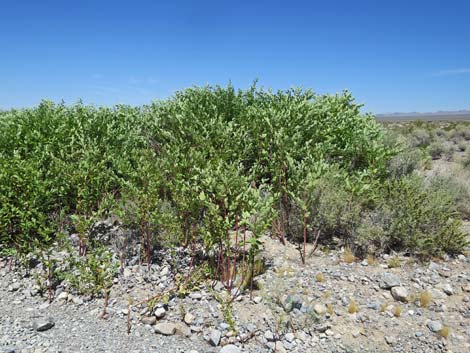 Indianhemp growing around a small desert spring |
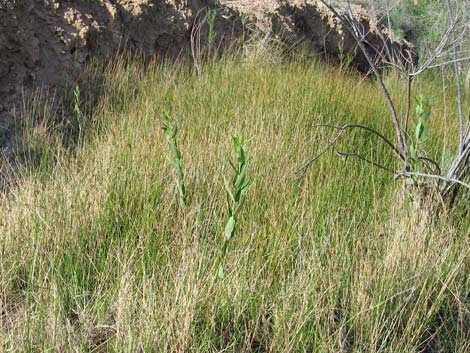 Indianhemp growing in a small desert wetland |
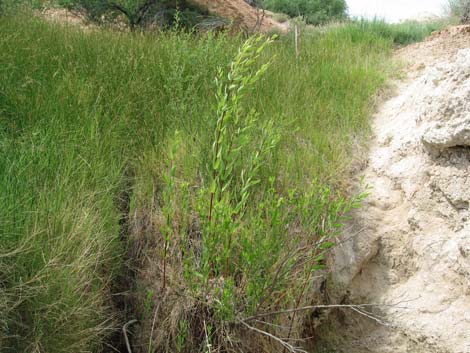 Indianhemp growing in a small desert wetland |
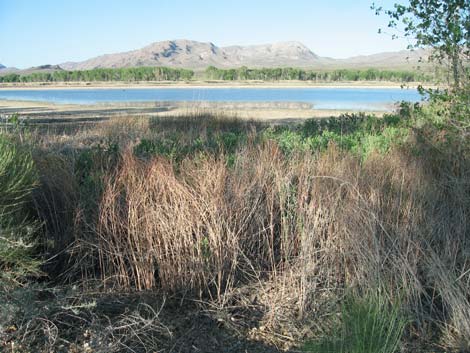 Indianhemp growing on the edge of a lake |
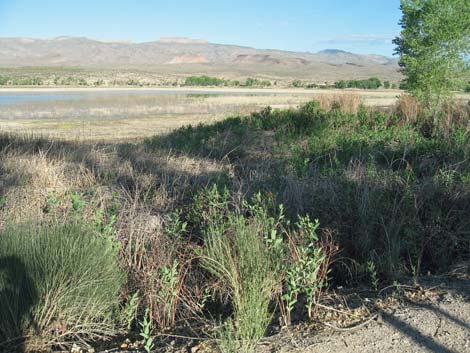 Indianhemp growing on the edge of a lake |
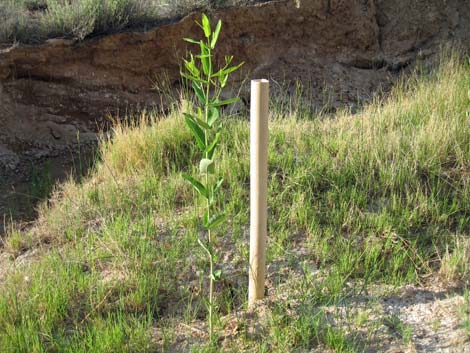 Indianhemp growing in a small desert wetland |
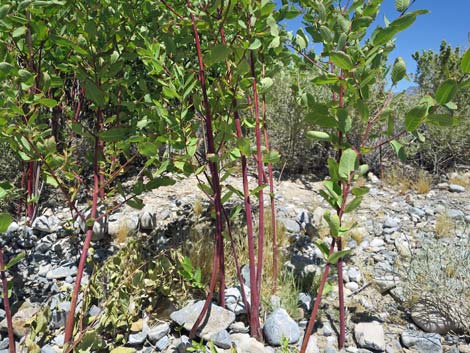 Stems grow straight and tall |
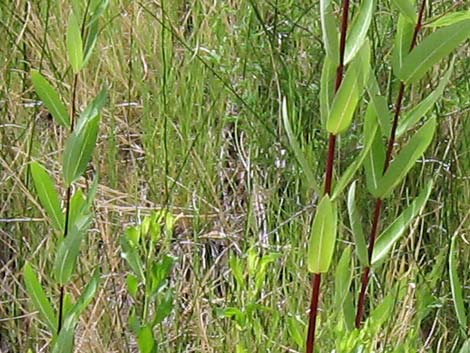 Stems grow straight and tall |
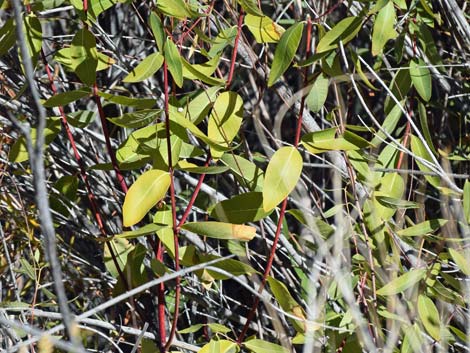 |
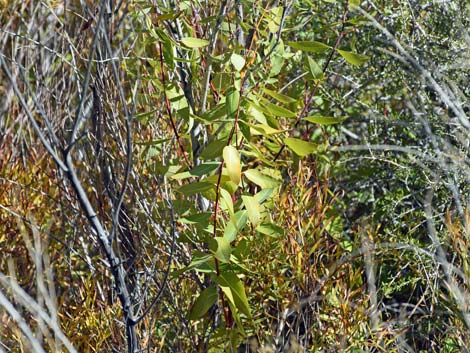 |
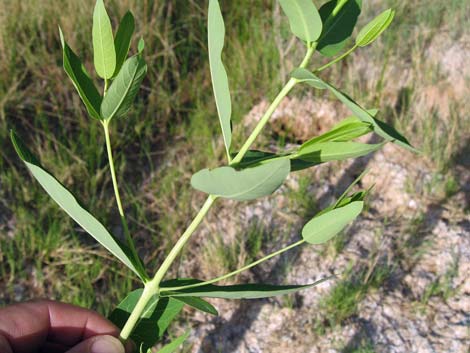 Stem can be green or red |
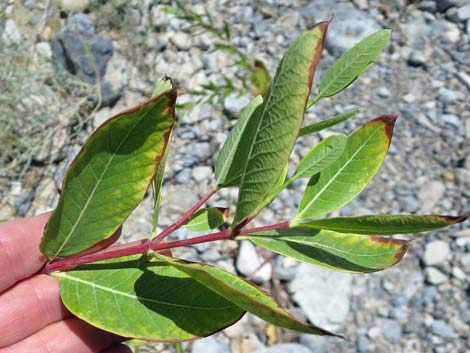 Stem can be green or red Stem can be green or red |
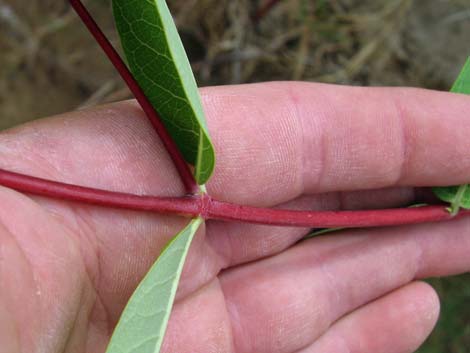 Stem can be green or red |
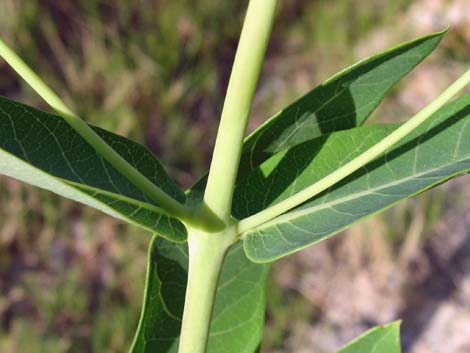 Stem can be green or red |
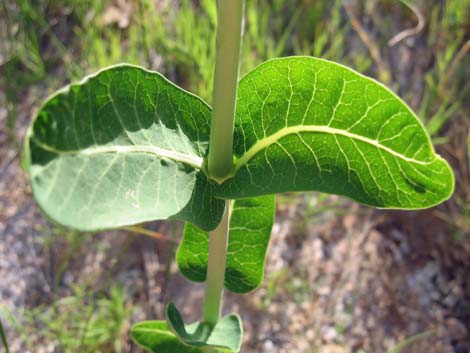 Leaves opposite and clasping |
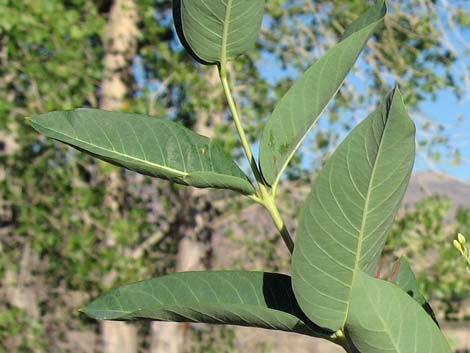 Leaves opposite and not clasping |
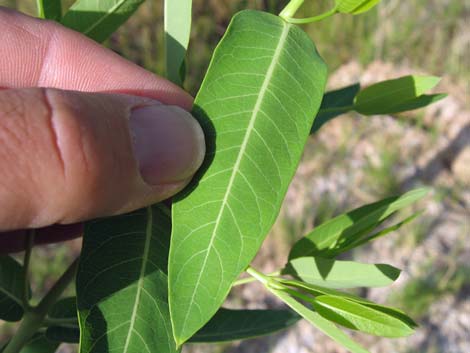 Upper leaf surface shows veins, yellow-green |
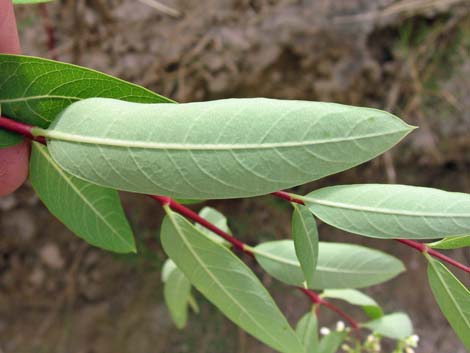 Lower leaf surface with veins, yellow-green, with white hairs |
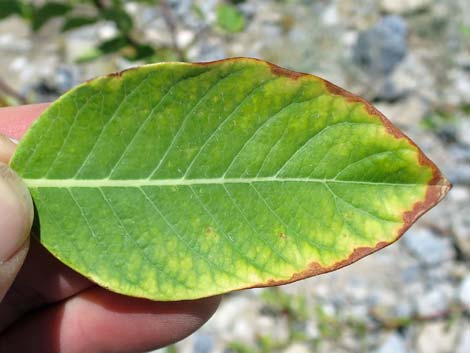 Upper leaf surface shows veins, yellow-green |
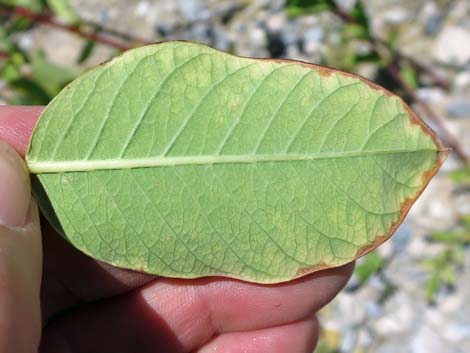 Lower leaf surface with veins, yellow-green, with white hairs |
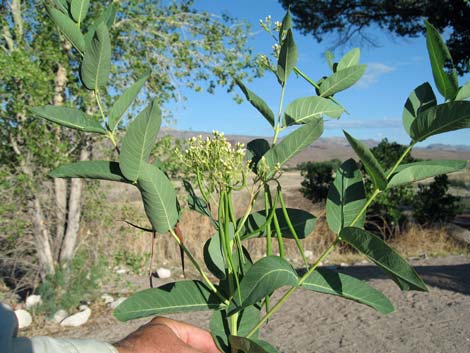 Flowers towards the top of the stem |
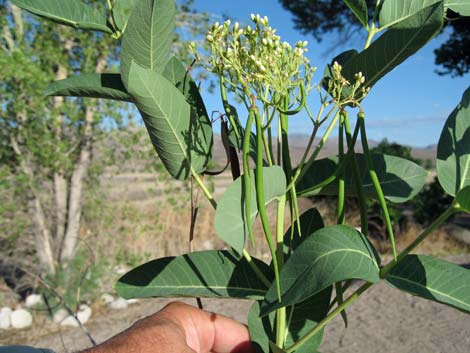 Flowers towards the top of the stem |
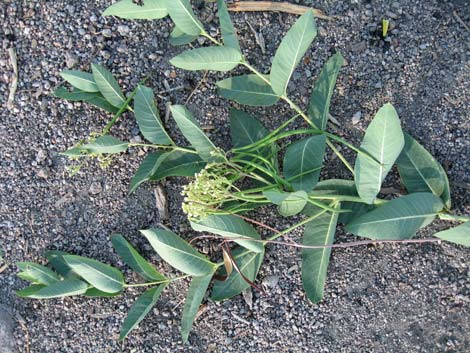 Flowers towards the top of the stem |
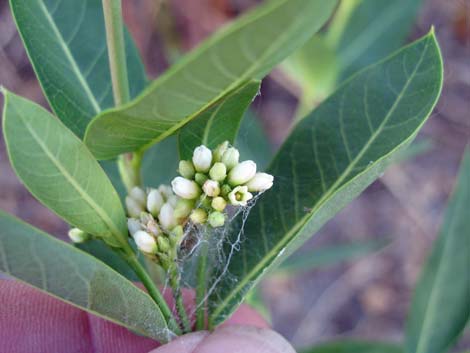 Flowers towards the top of the stem |
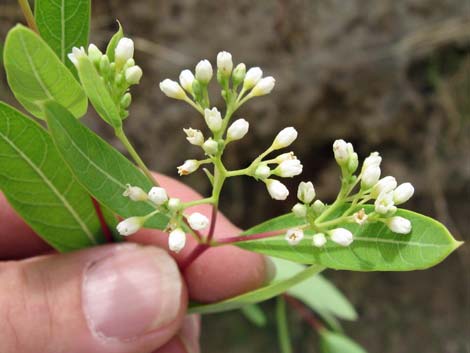 Flowers in clusters |
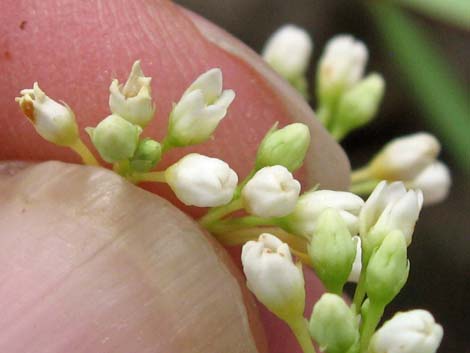 Flowers in clusters |
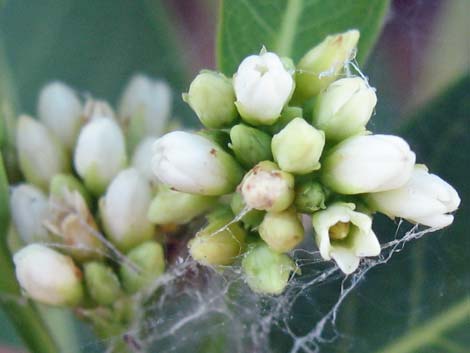 Flowers white, petals 5 |
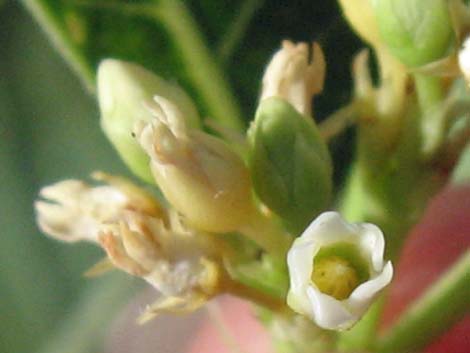 Flowers white, petals 5 |
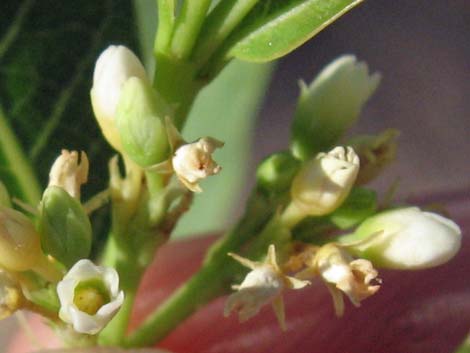 Sepals green, long |
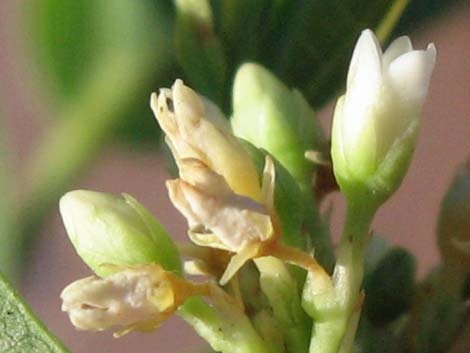 Sepals green, long |
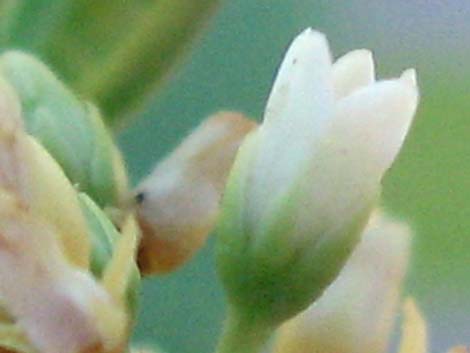 |
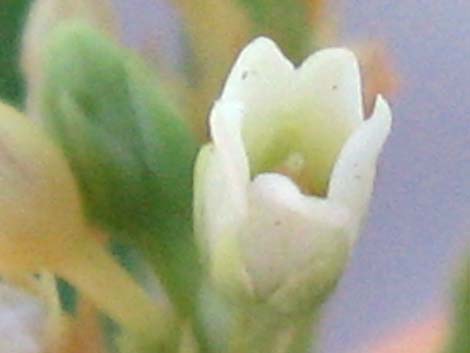 |
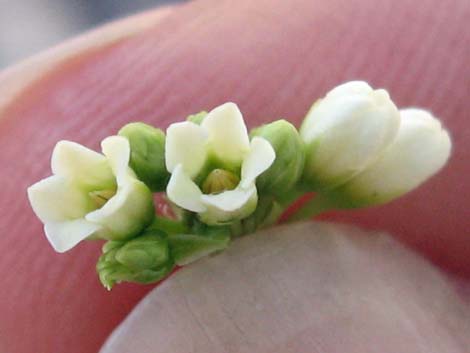 |
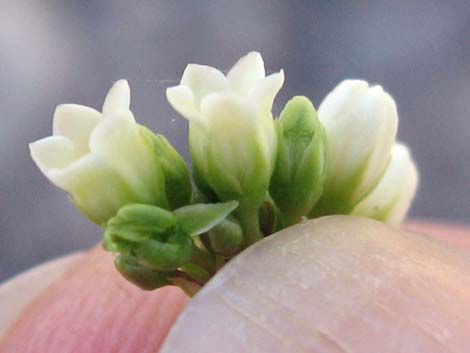 |
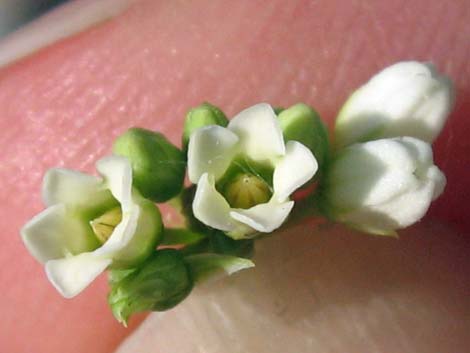 |
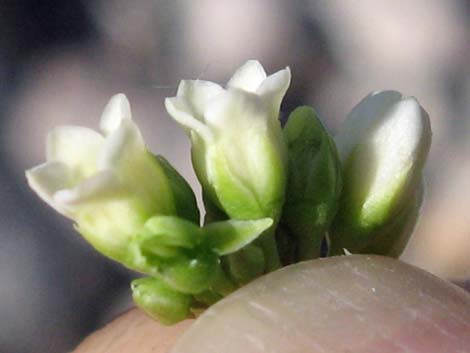 |
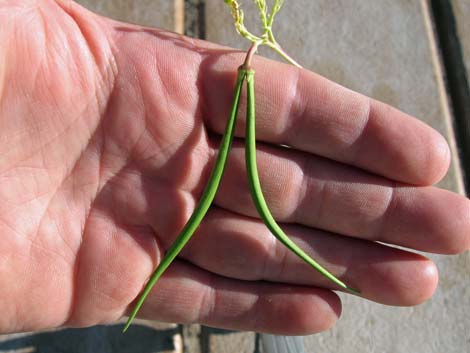 Seed pods long and narrow, generally in pairs |
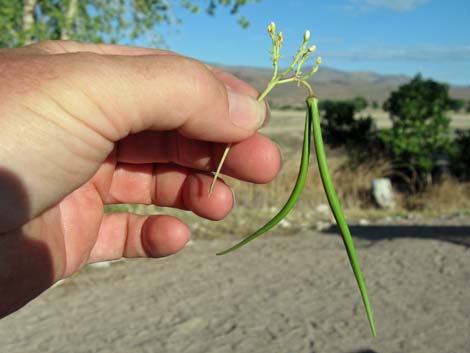 Seed pods long and narrow, generally in pairs |
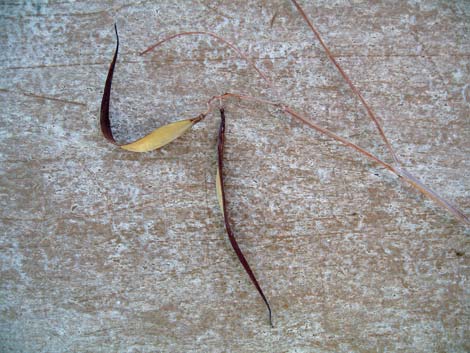 Dried seed pod (split open along the edges) |
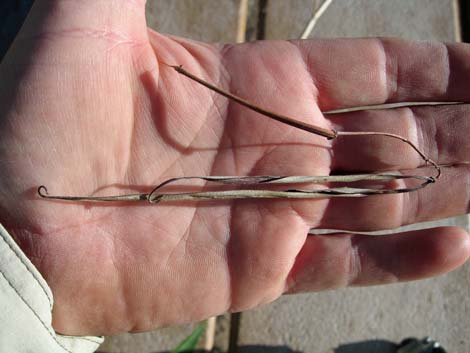 Dried seed pod (split open along the edges) Dried seed pod (split open along the edges) |
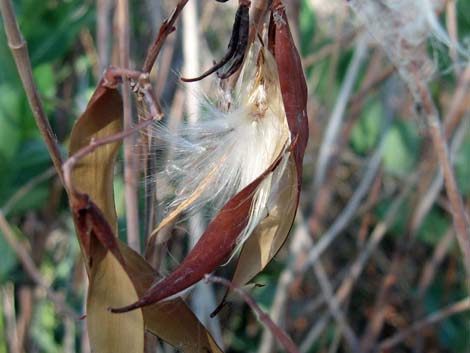 Dried seed pod releasing seeds |
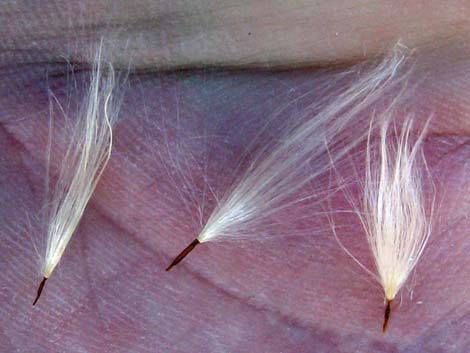 Plumed seeds |
Note: All distances, elevations, and other facts are approximate. Names generally follow the USDA database.
![]() ; Last updated 190510
; Last updated 190510
| All Perennial Forbs | Plant Species Index | Glossary | Copyright, Conditions, Disclaimer | Home |